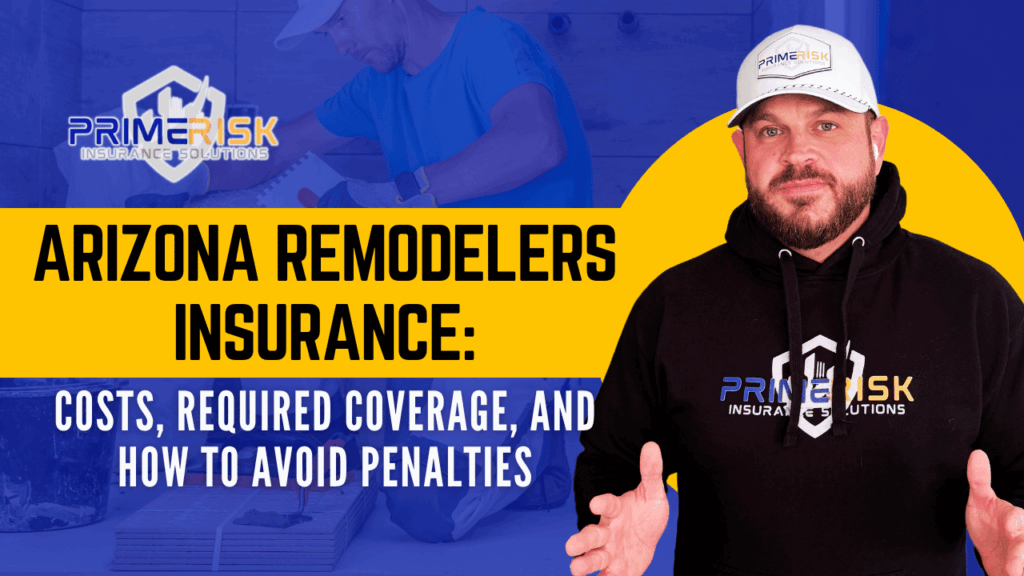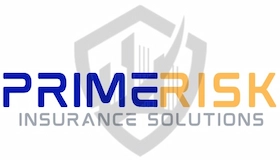
Remodeling contractors in Arizona face significant risks in daily operations, including job site injuries, property damage, and legal disputes. The state’s strict licensing and insurance laws require careful attention to detail. Failing to meet these requirements can lead to financial penalties, legal issues, or loss of the ability to work legally in the state.
Common concerns for remodeling contractors include:
- Understanding specific insurance requirements for legal operation in Arizona
- Clarifying the actual cost of remodeler insurance policies
- Identifying the consequences of carrying inadequate or no insurance coverage
This article provides an in-depth explanation of Arizona’s remodeler contractor insurance landscape, including state requirements, optional coverages, cost factors, and risk considerations.
1. Arizona Contractor Licensing and Insurance Requirements
Licensing and Insurance Compliance
The Arizona Registrar of Contractors (AROC) regulates contractor licensing and insurance compliance. Any contractor performing work where labor and materials exceed $1,000 must be licensed, and licensing requirements are directly tied to insurance obligations.
Contractor License Classifications
Arizona recognizes three primary license classifications that influence insurance needs:
- B-1: General Commercial Contractor – Permitted to work on projects of any size, including commercial and residential jobs. This category carries higher liability exposure.
- B-2: General Small Commercial Contractor – Allowed to take on projects up to $750,000. Despite the cap, this classification still requires comprehensive insurance protection.
- General Residential Contractor – Handles residential-only projects, including remodeling, repairs, and new construction, with specific risks related to work performed in occupied homes.
Handyman Exemption Limitations
Arizona permits a “handyman exemption” for projects under $1,000. However, this exemption does not apply if the work requires a local building permit. Insurance obligations may still exist even for small projects.
Penalties for Unlicensed Contracting
Arizona imposes strict penalties for unlicensed contracting, including:
- Fines starting at $1,000 to $2,500
- Up to six months of potential jail time for repeated offenses
- Loss of lien rights or ability to enforce payment through legal action
- Possible consumer fraud penalties of up to $10,000 per incident
Residential Recovery Fund
Arizona’s Residential Recovery Fund provides financial protection to homeowners when licensed contractors perform faulty work. The fund covers up to $30,000 per claim but does not limit the contractor’s liability beyond that amount. Licensed contractors are required to contribute to this fund as part of the licensing process.
2. Required and Recommended Insurance Coverage
General Liability Insurance
General liability insurance covers third-party claims for:
- Bodily injury occurring on the job site
- Property damage resulting from contractor operations
- Personal and advertising injury, including slander or copyright claims
- Defective work that causes damage after project completion (products-completed operations)
Arizona operates under a comparative negligence system, meaning contractors can be partially liable for incidents even if other parties share the fault.
Workers’ Compensation Insurance
All Arizona employers must carry workers’ compensation insurance, regardless of fault in workplace accidents. Coverage includes:
- Medical costs for work-related injuries
- Partial wage replacement
- Disability benefits for temporary or permanent impairments
- Death benefits for dependents in case of fatal workplace incidents
Contractors must also carefully classify employees versus independent contractors to ensure compliance with workers’ compensation laws.
Commercial Auto Insurance
Contractors using vehicles for business purposes are required to carry commercial auto insurance. Arizona mandates minimum coverage of:
- $25,000 per person for bodily injury
- $50,000 per accident for bodily injury
- $15,000 per accident for property damage
Higher limits are often recommended due to the risk profile of commercial vehicles.
Professional Liability (Errors & Omissions Insurance)
Professional liability insurance covers claims related to:
- Design errors
- Project management failures
- Failure to meet contract specifications
- Project delays causing financial loss
This coverage is essential for contractors who provide design consultation or manage subcontractors.
Tools and Equipment Insurance
Contractors often rely on specialized tools and machinery. Tools and equipment insurance, often through an inland marine policy, protects against:
- Theft from job sites or vehicles
- Vandalism or accidental damage
- Equipment breakdown in certain policies
Coverage typically applies both on and off the job site.
Business Owner’s Policy (BOP)
A Business Owner’s Policy combines general liability and commercial property insurance. This packaged policy may also include:
- Business interruption coverage
- Equipment breakdown protection
- Coverage for materials and inventory stored on-site
BOPs are commonly used by small to mid-sized contractors for cost efficiency.
Umbrella Insurance
Umbrella insurance provides additional liability protection beyond the limits of primary policies such as general liability or commercial auto. Typical umbrella policies add $1–2 million in extra coverage, offering broader protection against large claims or lawsuits.
3. Insurance Costs for Arizona Remodeling Contractors
Primary Cost Factors
| Factor | Impact on Cost |
|---|---|
| Business Size | Larger payrolls and revenues increase premiums |
| Type of Work | Higher-risk trades (e.g., roofing, structural work) cost more |
| Coverage Types | Each coverage adds to total insurance cost |
| Policy Limits and Deductibles | Higher limits increase premiums; higher deductibles reduce them |
| Claims History | Frequent claims raise costs; clean histories lower them |
| Geographic Location | Urban areas may have higher premiums due to increased exposure |
Average Annual Premiums
| Insurance Type | Typical Annual Cost |
|---|---|
| General Liability | $750 – $2,500 |
| Workers’ Compensation | $8–$12 per $100 of payroll |
| Commercial Auto | $1,200 – $2,500 per vehicle |
| Professional Liability | $500 – $1,500 |
| Tools & Equipment | $300 – $800 |
| Umbrella Insurance | $750 – $1,500 for $1 million in extra coverage |
4. Evaluating Insurance Providers
Key Selection Criteria
When selecting an insurance provider, factors to consider include:
- Financial stability and claims-paying reputation (A.M. Best ratings are a useful guide)
- Specialization in contractor insurance
- Claims handling efficiency and responsiveness
- Customization options for specific contractor needs
- Transparency in policy terms and exclusions
Contractual Insurance Requirements
Many commercial or residential clients require contractors to provide:
- Certificates of insurance
- Additional insured endorsements
- Waivers of subrogation
- Primary and non-contributory policy provisions
Meeting these requirements is often necessary for project approval or contract signing.
5. Risk Management and Claims Process
Best Practices for Filing Claims
- Report incidents promptly to the insurance provider
- Document accidents with photos, video, and witness statements
- Maintain records of contracts, permits, and communications
- Cooperate fully with adjusters during the claims investigation
Preventing Claims Through Risk Management
Proactive risk management reduces the likelihood of claims and may lower insurance premiums over time. Best practices include:
- Conducting regular safety trainings
- Using standardized contracts and change orders
- Inspecting job sites for hazards daily
- Clearly communicating project scope and expectations with clients
6. Practical Considerations for Arizona Remodeling Contractors
Arizona contractors operate in a complex regulatory and insurance environment. Compliance with state licensing laws, including bonding and contributions to the Residential Recovery Fund, is mandatory. Contractors must also account for geographic factors, project types, and trade specializations when selecting insurance coverage.
Careful evaluation of insurance options, proper documentation, and the implementation of safety programs contribute to long-term business stability and reduced liability exposure.

